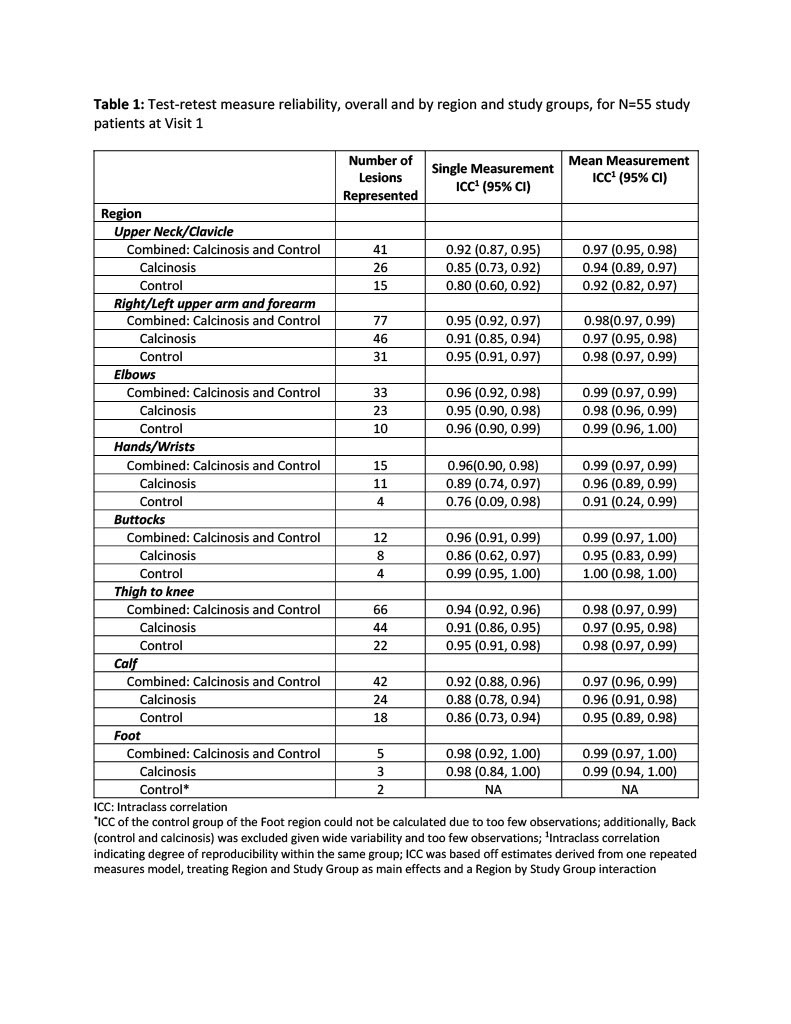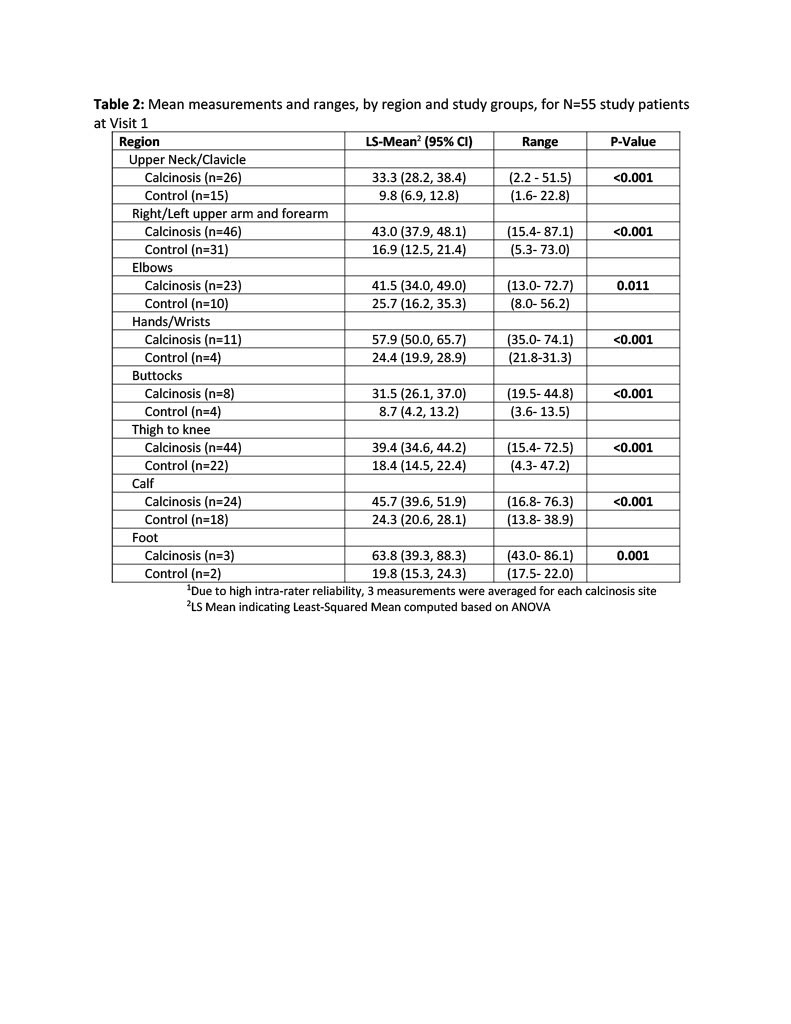Session Information
Session Type: Poster Session A
Session Time: 1:00PM-3:00PM
Background/Purpose: Dermatomyositis (DM) and juvenile dermatomyositis (JDM) are idiopathic inflammatory myopathies primarily affecting proximal skeletal muscle and skin. Calcinosis, a known complication of DM, is associated with significant long-term morbidity and can serve as a marker of prolonged disease activity. Despite this, tools to assess calcinosis in DM/JDM patients have been inadequately validated. Durometers, handheld devices used to measure firmness, have previously been demonstrated to be a reliable measure of skin disease in scleroderma patients. The goal of this study was to determine the validity and reliability of calcinosis durometer measurements in JDM and DM patients enrolled in our natural history study.
Methods: Calcinosis firmness was measured using handheld digital durometer (Rex Gauge 1600 Type DD-4-00) with a continuous scale across 3 institutions (Bethesda, Maryland; Atlanta, GA; Dallas, TX). Four investigators examined JDM and DM calcinosis lesions by durometry, recording three readings per site as well as control readings in similar anatomic areas that were unaffected by calcinosis. Calcinosis sites were selected to vary anatomically in distribution and firmness appreciated on physical examination. To assess reliability for intraclass correlation, we utilized a two-way hierarchical linear mixed effect model based on the average of site readings for test-test reliability. One-way ANOVA was performed to determine statistical significance between groups.
Results: We enrolled 55 patients and measured a total of 294 lesions by durometry (187 calcinosis and 107 control sites over nine anatomic sites). Among the patients enrolled in our study, there was a predominance of juvenile (54.5%, < 18 years of age) white (56.4%) females (63.6%) with a median age of 18.0 years (range 6 -73 years). Approximately 45% of our cohort was diagnosed with adult DM, and 55% with juvenile DM. Intraclass correlation was high over repeat measurements, including control and calcinosis sites, indicating good intra-rater reliability in durometry measurements of calcinosis (Table 1). There was greater firmness of lesions among pooled calcinosis sites versus control sites, by anatomic regions, suggesting good content validity (p< 0.001 for all; Table 2). We determined durometry readings of calcinosis sites were statistically higher than controls in the following locations: upper neck/clavicle, upper arms/forearms, elbows, hand/wrists, buttocks, thigh to knee, calf and foot (Table 2).
Conclusion: Our study identifies durometry as a reliable tool in assessing calcinosis in DM/JDM patients. Lesions were noted to range in firmness; calcinosis lesions overall were harder compared to control lesions. Further studies should be conducted to examine the inter-rater reliability of durometry, determine if durometry readings may be used to longitudinally monitor calcinosis, and examine its construct validity with quality of life measures and functional tests.
Acknowledgements: IRP of NIH, CC, NIAMS, NIEHS.
To cite this abstract in AMA style:
Nelson M, Schiffenbauer A, Kim H, Gillespie S, Do V, Fuller J, Rider L, Rouster-Stevens K. Intra-rater Validation of Calcinosis Durometer Measurements in Juvenile and Adult Dermatomyositis [abstract]. Arthritis Rheumatol. 2022; 74 (suppl 9). https://acrabstracts.org/abstract/intra-rater-validation-of-calcinosis-durometer-measurements-in-juvenile-and-adult-dermatomyositis/. Accessed .« Back to ACR Convergence 2022
ACR Meeting Abstracts - https://acrabstracts.org/abstract/intra-rater-validation-of-calcinosis-durometer-measurements-in-juvenile-and-adult-dermatomyositis/


